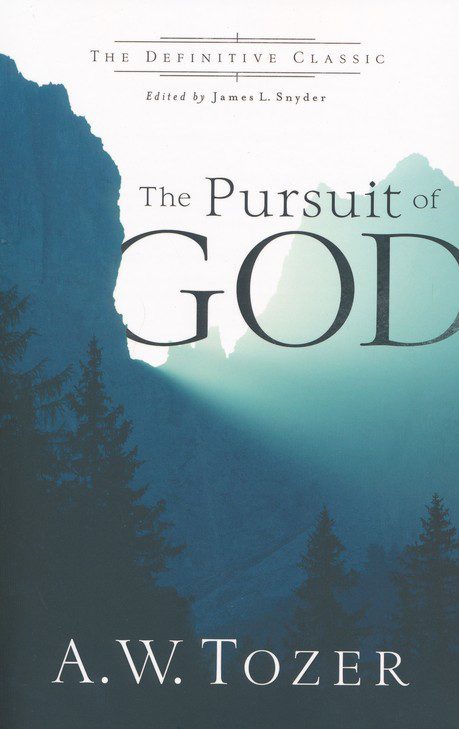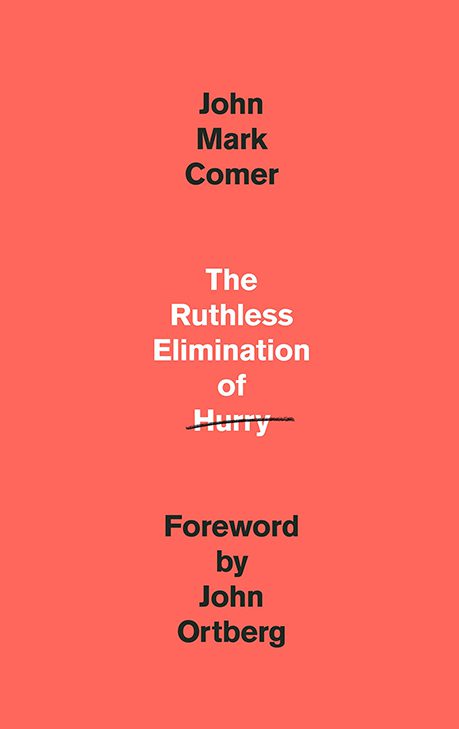Personal study is an important aspect of the Christian life. Much could be said of the ways that reading forms our minds, but I will save that for another article. As the new year begins, I have asked our editorial team to provide a book recommendation for 2020. These are diverse books from various genres that our team has read in 2019 and served in a pivotal role to form our minds around the things of God. I hope that you find these recommendations and reviews helpful. All books will be linked to Amazon where you can purchase these books.
The Pursuit of God by A.W. Tozer
Tozer’s “The Pursuit of God” continues to reign as one of my favorites. It has short, truth-filled chapters, making it easy to pick up and read in the midst of a busy life. Tozer explores what a life in pursuit of the living God looks like from many different angles, emphasizes the role of the Spirit, and encourages those in pursuit all at once.
I have read through this book seven times this year and still go back to certain chapters when I know I need to. The ideas in the book have changed my perspective on the Lord and the that way I choose to live in pursuit of Him. I learn something new with each read. 10/10 highly recommend for those who are joining in the pursuit of something greater.
-Merrin Gilmer, Christian Living Editor
The End of Our Exploring by Matthew Lee Anderson
It was difficult to pick my favorite book of 2019, but as I reflected over the books I read this year, The End of Our Exploring kept coming to mind. This book uniquely and beautifully explores what it means to question well. Starting with the questions asked in the Garden of Eden, examining what good question asking is as well as how to be explorers of knowledge in community, and pointing us to the hope of the “end of our exploring” where we “shall not cease from exploration…and know the place for the first time.”
This book was thought-provoking on every page. Anderson manages to create vivid images of abstract ideas, and made me think about my questions in ways I never have before. I recommend this book to anyone who has ever asked a question. It is beautifully written and wonderfully unique. I learned more about what it means to thoughtfully question and more of how God meets us in the midst of our uncertainty and exploration. It is so worth your time. I heartily recommend The End of Our Exploring.
-Emily Zell, Assistant Director
It Happens After Prayer by H.B. Charles
The premise of this book is to call the people of God to become serious about prayer. H.B. Charles examines the necessity of praying sincerely, obediently, constantly, with spiritual priorities, and putting in good work in our spiritual lives. I loved this book because it made me examine how I prayed and what I prayed about compared with how the Bible commands us to pray.
H.B. Charles also reminded me to be thankful we have access to the throne room of God to make our petitions and have our anxieties removed. This book was used to change my prayer life in such a remarkable way.
-Maddie Nelson, The Church Editor
Anaphora: New Poems by Scott Cairns
Anaphora is a collection of poems by poet Scott Cairns. Cairns has produced eight other collections of poetry (Idiot Psalms being a treasured book for me), a spiritual memoir, and more. He is an Eastern Orthodox believer whose poetry is centered on the language of faith, Scripture, and God. This collection of poems is both accessible and intriguing. Avid poetry readers and newcomers alike can find delight in these lines.
I really enjoyed this book because Scott Cairns’ poetry embodies a sacramental vision of the world. The aspects of life he puts into his poems inhabit a reality bigger than themselves. Not only this, but the words themselves come to participate in the truths to which they point.
– Joey Jekel, Senior Editor
The best book I read in 2019 was Ian McEwan’s 2002 novel “Atonement.” The novel is set in England in the late 1930s and follows Briony Tallis as she ages from little girl to young woman and grapples with a destructive lie she told in her childhood which incriminated an innocent young man. McEwan’s talent is singular. At once static and elusive, every sentence in “Atonement” is so carefully crafted — McEwan is so careful to never waste a line, a character, a scene, or a single word.
However, he’s not just careful with the specifics; McEwan’s plot is genius. He takes the reader through each characters’ experience of childhood, romance, family, and war; “Atonement” is not an “epic” length-wise, but it is grandiose and ambitious in the amount of human experience it paints. I believe the novel presents many important themes for Christians to consider, especially concerning the place art holds in our modern world. “Atonement” is a marvelous meditation on the nature of storytelling, worldview, love, and truth — themes every Christian should grapple with.
-Isaias Uggetti, Worldview Editor
This book is eye opening and so challenging. I am quite limited in wisdom and even lesser in experience, so it is necessary for me to hear about ministry from a man seasoned in ministry like Eswine. I think even the most mature and experienced among us should pick this book up.
It effectively takes a look down the ministry road and points to the various obstacles a person will encounter or be the cause of in a life of discipleship to Jesus, and teaches us how to lean on Jesus in the midst all the human helplessness and temptations toward chasing acclaim. This took me a long time (which I am glad for). It confronted me and encouraged me in a number of unforeseen ways. It is well worth prayerfully chewing on for a long time.
-Joseph Roseman, Worldview Editor
The Ultimate Proof of Creation: Resolving the Origins Debate by Jason Lisle
Not only does Dr. Lisle’s book defend the biblical account of creation, it serves as a clear introduction to presuppositional apologetics. After reading this, the reader should expect to have a solid foundation for defending the faith. His book does not evaluate many religions, but through general examples, the book prepares the reader to perform internal critiques of various non-Christian religions.
Anyone wishing to defend the Christian faith and who wishes to better engage unbelievers should give this book a thorough read. The Scriptures defend themselves against all ideologies that reject the triune God, and relying on God’s word, Dr. Lisle proves it.
-Nnanna Okafor, Theology Editor
Is Jesus enough? Is the gospel worth the price? As Christians, these are questions we all ask ourselves. We want the security of our homes, money, and convenient lifestyles, but at the end of the day when we lay our head on the pillow, we often ask, “Did I do enough?”
David Platt’s Radical challenges the reader to ponder and grasp what Jesus means when he says to take up your cross. It requires daily surrender of desires and motives to a God whose call on our life is greater than we can fathom. It will be difficult, uncomfortable, and harder than we can imagine, but we find true meaning in life when we lose our life for the sake of the gospel. Souls across the globe are at stake.
Jesus is calling us to a life radically different than the world. Read Radical to see what picking up your cross looks like; it will change your life. Will you answer the call?
-Anna Kate Brown, Theology Editor
Slaughterhouse-Five by Kurt Vonnegut Jr.
Slaughterhouse-Five is Kurt Vonnegut’s novel about his experience in the firebombing of Dresden. At first glance, the novel is about war and funny-looking aliens from outer space. But, at its core, it is about deeply human issues. Vonnegut uses science fiction—episodes wherein Billy, the main character, encounters beings from outer space—to create a unique narrative and discuss the relationship between war and theology.
Throughout the novel, Vonnegut challenges the Christian understanding of free will and predestination—a dichotomy that I struggle with greatly. By dragging the reader through his encounter with war, our ideologies—ideas of theology, philosophy, and moral obligation—collide with experience. Vonnegut makes the reader reconcile ideological perception with reality. Vonnegut forces us to ensure that our convictions are truly our own.
-Preston Blakeley, The Church Editor
The Ruthless Elimination of Hurry by John Mark Comer
If you know me well, you know that I struggle to cultivate rhythms of rest in my life. This book is clear, concise, and compelling. Comer, a pastor in Portland, Oregon, discusses the culture of hurry in America and presents a “rule of life” as a solution. Comer defines a “rule of life” as a schedule or set of practices and relational rhythms that help us create space in our busy world for us to be with Jesus, become like Jesus, and do what he did. Rather than presenting a “silver bullet” that will completely solve all hurry and stress in your life, Comer gives four practices to implement into your “rule of life”: solitude, sabbath, simplicity, and slowing.
Over the past month or so, I have begun to implement these practices in my life and I have experienced so much growth as a result of it. For several years, I naively viewed rest as the enemy of productivity, yet implementing the practices presented by Comer have led me to love the Lord more and serve him in a more effective and healthy manner. I would highly recommend The Ruthless Elimination of Hurry for anyone who is overwhelmed by busyness, interested in slowing down their life, and/or wants to learn to enjoy God more.
-Cole Shiflet, Director











